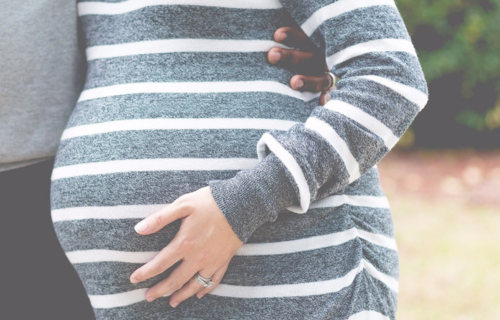 Diet quality and blood pressure among pregnant women with overweight or obesity: A secondary analysis of two randomised controlled trials
Diet quality and blood pressure among pregnant women with overweight or obesity: A secondary analysis of two randomised controlled trialsIntroduction: Maternal obesity is a significant risk factor for hypertensive disorders of pregnancy. High diet quality may protect against this, yet data regarding the relationship between diet quality and blood pressure among pregnant women with raised body mass index (BMI) is limited.
Material and methods: This is a secondary analysis (n = 543) of women with BMI ≥25 kg/m2 from two randomised controlled trials; PEARS (Pregnancy Exercise and nutrition Research Study with smartphone application support) and ROLO (Randomised cOntrol trial of LOw glycemic index diet to prevent macrosomia in euglycemic women). Blood pressure was measured at 10-18 weeks and 28 weeks of pregnancy. Mean arterial pressure was calculated as (diastolic blood pressure +13× [systolic blood pressure - diastolic blood pressure]). Diet quality was assessed using 3-day food diaries, and Alternative Healthy Eating Index for Pregnancy (AHEI-P) scores were generated, quantifying alignment of food intakes with dietary guidelines in first and early third trimesters. The cohort was divided based on AHEI-P tertiles to explore differences at an alpha significance value of <0.05.
Results: The mean age of the group was 32.21 ± 4.39 years with a median body mass index (BMI) of 28.13 (IQR 3.47) kg/m2 . Mean arterial pressures in the first and third trimesters were 81.07 ± 9.00 mmHg and 82.33 ± 7.53 mmHg, respectively. Rates of elevated blood pressure (≥120/80 mmHg) were 22.33% in trimester 1 and 24.48% in early trimester 3. Mean AHEI-P scores in trimester 1 and early trimester 3 were 53.90 ± 10.43 and 54.05 ± 10.76, respectively. There was no correlation between AHEI-P score and blood pressure and no differences in blood pressure between AHEI-P tertiles at either timepoint (all P-values <0.05). A higher proportion of those with elevated early third trimester blood pressure had a BMI of ≥30 kg/m2 compared with those with normal blood pressure (40.31% vs 28.64%, P = 0.016).
Conclusions: While diet remains an important factor in maternal health and wellbeing, we did not find a relationship between diet quality as measured by AHEI-P and blood pressure among pregnant women with BMI ≥25 kg/m2 . High BMI remains a risk factor for hypertensive disorders of pregnancy.
Congratulations to all involved.
This abstract can be found on the NIH (National Library of Medicine) website.